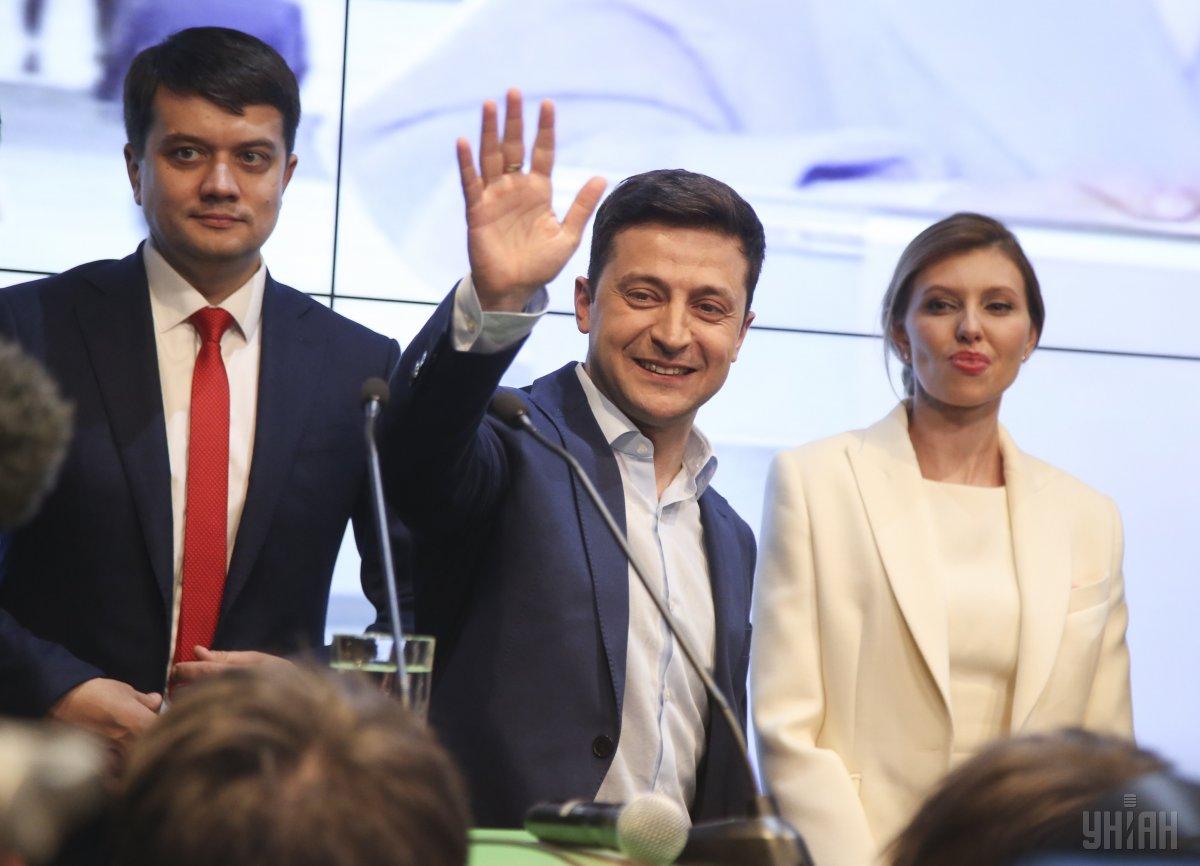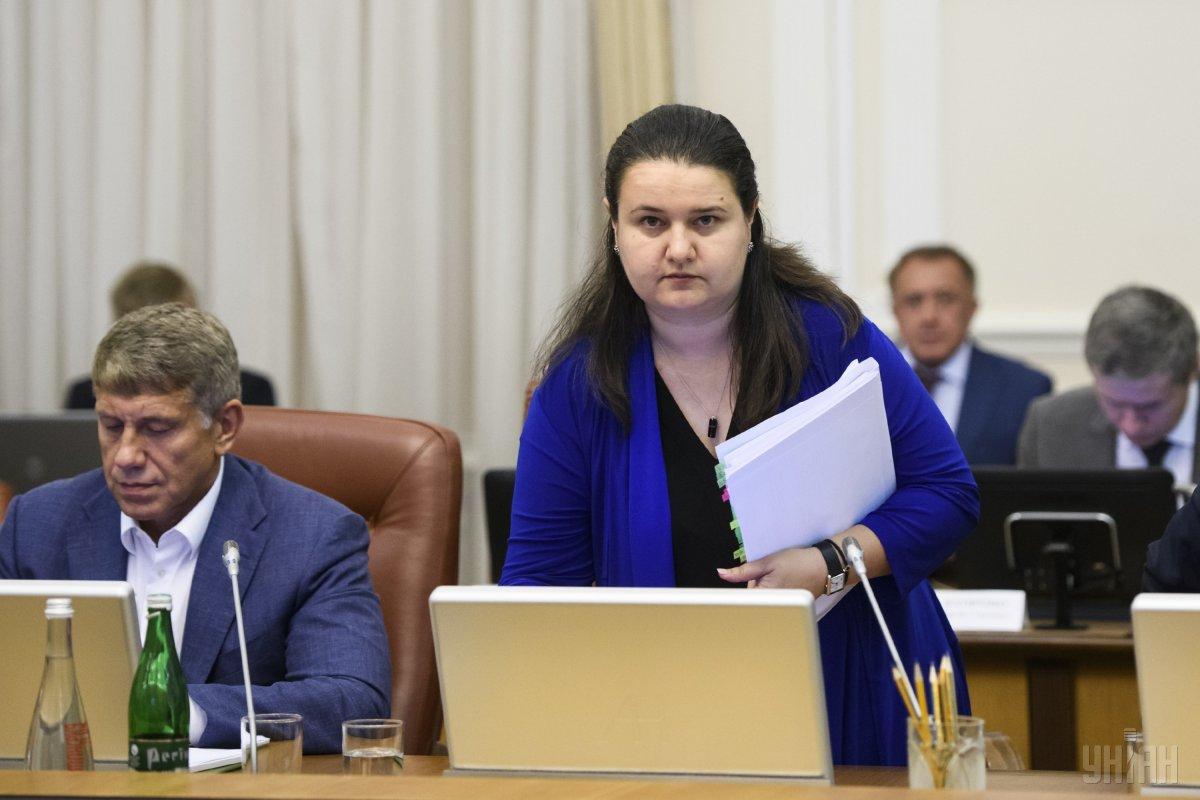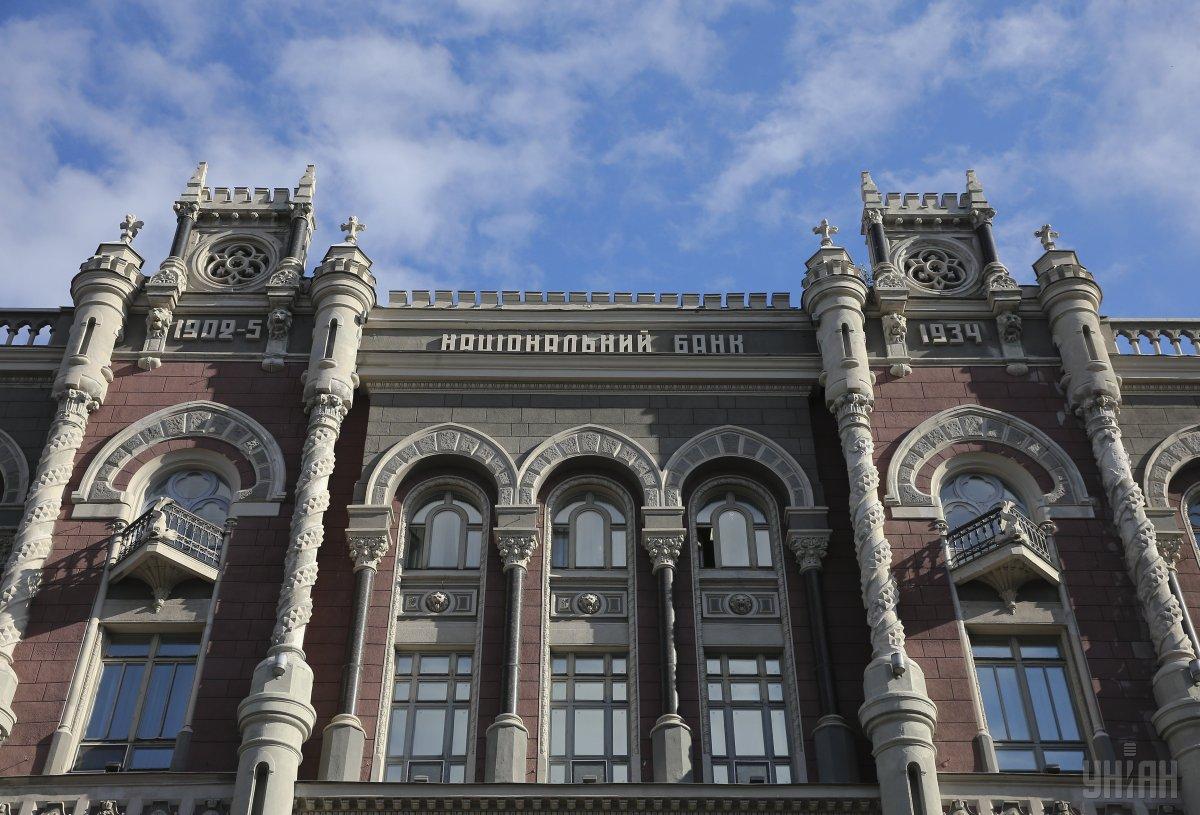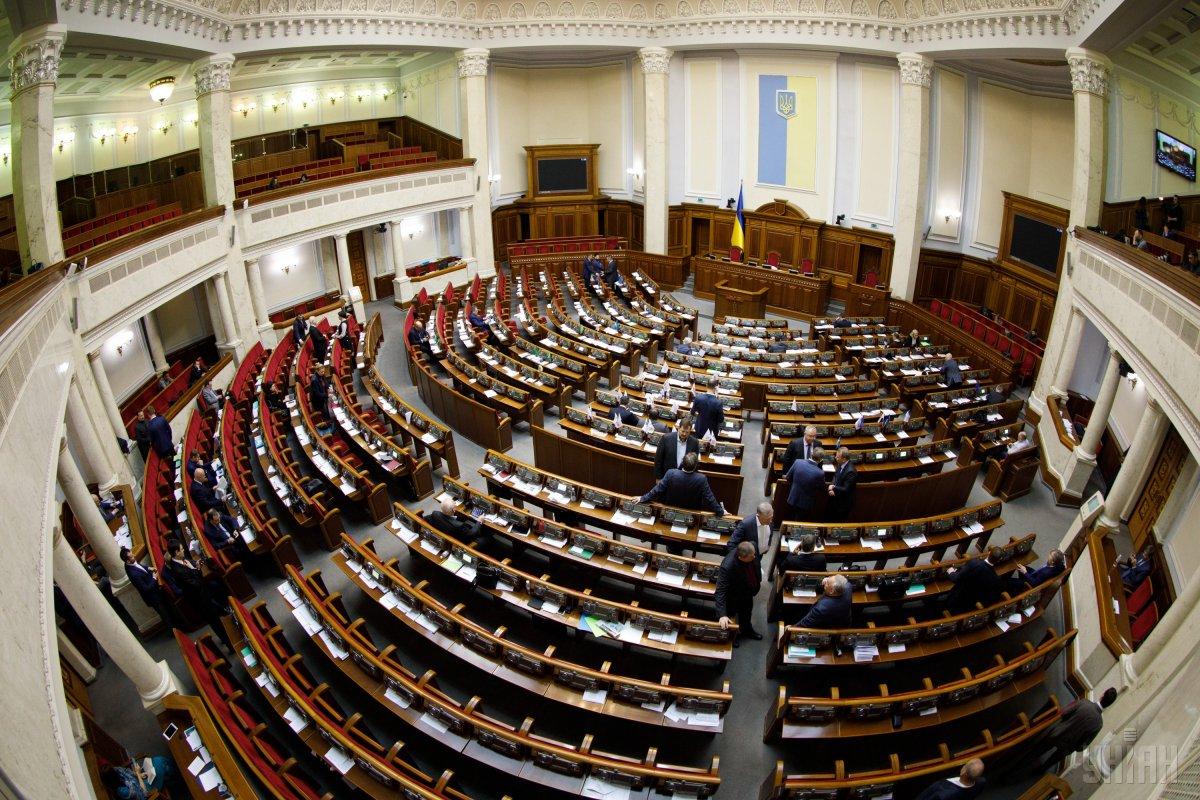
Week's balance: Businesses voice wishes to Zelensky, Statistics Service reports increase in industrial output, and National Bank lowers key rate
President-elect Volodymyr Zelensky through his advisors told about his vision of economic policy; businesses and investors voiced their expectations from the new head of state; Deputy Finance Minister Serhiy Verlanov won the competition for the position of head of the Tax Service; the State Statistics Service reported growth in industrial output n in March; while the NBU, for the first time in the last two years, lowered its key rate and improved a number of macroeconomic forecasts – these are the main economic developments of the outgoing week.
In the last working week of April, the Central Election Commission summed up the second round of the presidential race, according to which the 41-year-old showman and actor, Volodymyr Zelensky will become the new head of state. Some 73% of voters voted supported Zelensky, which is the highest number in the entire history of the country's independence.
European Business Association, Dragon Capital Investment Company, and Center for Economic Strategy several days after the second round announced the results of a survey of foreign investors on their expectations from the president-elect. In their opinion, the first steps should be about an effective fight against corruption, appointment to key government positions of reformers with good reputation, as well as limiting the influence of oligarchs on top decision making.
"Both external (1.2% of GDP) and domestic (17% of GDP) investment are at a very low level, which does not allow for accelerating economic growth and reducing Ukraine's lag from its western neighbors. We hope that the new president and the Verkhovna Rada will direct their energy primarily on establishinig the rule of law, fighting corruption, and limiting the influence of oligarchs," said EBA President and Dragon Capital CEO Tomas Fiala.
In addition, investors expressed hope for a quick agreement with Ukraine's key creditor, the International Monetary Fund, on the next loan tranche. Among the factors that may affect investment and business processes, businessmen called the possible deviation from the country's Western geopolitical vector.
Foreign investors echo Ukrainian financial experts in claiming that further cooperation with the IMF will be a determining factor for ensuring stability of the national currency.
"Now Zelensky's win will have no impact on the hryvnia rate. It was predictable, and everything's long been in the price. In the medium term, the hryvnia rate will depend on whether cooperation with the IMF continues. If it doesn't, everything will be very unstable, and if we lose the IMF, the estimates no longer matter, because for us this is the way towards default," said Serhiy Fursa, an expert with Dragon Capital.
The advisor to Zelensky, former Finance Minister Oleksandr Danyliuk says their team looks forward to continued cooperation with the IMF and a successful review of the existing stand-by program. He also expects the government to fulfill its obligations to the IMF, despite the upcoming parliamentary elections.

Meanwhile, despite these assurances, the provision of the next tranche to Ukraine remains an open issue.
The International Monetary Fund will take its final decision after its mission does it field work in Ukraine. NBU Governor Yakiv Smolii, it is expected to arrive in mid-May. However, Ukraine has not yet fulfilled a number of important conditions. In particular, the country didn't adopt a "split" law on dividing the functions of the National Financial Service between the National Bank and the National Commission on Securities and Stock Market, and neither did it complete the reform of the State Fiscal Service.
Fiscal turbulence
In the outgoing week, the reform of the State Fiscal Service, involving its unbundling into the tax and customs agencies, has entered a new stage. On Tuesday, the competition commission, despite numerous attempts to disrupt its work, completed the final phase of selection for the position of head of the State Tax Service.
The head of the newly created organization, just as the experts predicted, will be the current Deputy Finance Minister, Serhiy Verlanov.
Meanwhile, the competition for the post of head of the Customs Service was effectively blocked by the courts. The most promising candidate for this position is Deputy Minister of Economic Development and Trade Maksym Nefyodov, praised for his fresh reformist views. However, the “smuggling mafia” (as Prime Minister Volodymyr Groysman called it), unwilling to "share their cake," interfered in the competition through the judges of the Kyiv District Administrative Court.
The initiators of its blocking were the notorious ex-head of the SFS, Roman Nasirov, MP Andriy Antonishchak, and former head of Kharkiv's Tax Administration Stanislav Denysiuk.
The Cabinet of Ministers of Ukraine, outraged by the actions of supporters of shadow schemes at customs, filed a counter claim to cancel the decision to stop the competition. However, on Thursday, the judge rejected the claim.

"The Administrative court's judge refused to cancel the decision to secure a claim regarding the ban on the competition for the position of head of customs. Therefore, for now, the competition remains suspended in accordance with the decision of the Commission. We will appeal and fight further for the creation of transparent and professional customs office," Finance Minister Oksana Markarova wrote on Facebook.
The fate of the competition remains unclear. This means that Ukraine did not have time to fulfill the promise made to international partners to complete by end-May the comprehensive reform of the fiscal agency. This once again proves that any reform that could hinder corruption flows is destined to stumble into major blocking. Time will show whether the new president’s team is able to break this vicious circle.
Initially it was assumed that the reorganization of the SFS will improve the efficiency and transparency of fiscal bodies, eliminate the hotbed of corruption, and improve quality of services.
Industry shows growth
The important economic news of the outgoing week was the report of the State Statistics Service on the results of Ukraine's industry in March. After a fall in the previous month came growth at 2.1% in annual terms. A month earlier, the decline was at 1.8%.
The State Statistics Service recorded the highest industrial production increase in the third month of 2019 was registered in manufacture of furniture and other commodities, as well as repairs and installation of machinery (by 12.9%), the production of rubber and plastic goods, as well as non-metallic mineral products (by 12.4%), and steelmaking industry, except machinery and equipment (by 8.9%).
The steepest decline in March 2019 y-o-y was recorded in production of electrical equipment (by 19.2%), textile industry (by 10.3%), supply of electricity, gas, steam and air conditioning (by 8.1%), and coke and fuel output (by 3.8%).
The results of industrial enterprises have a direct impact on the national economy. According to the forecasts of the National Bank confirmed at the outgoing week, by the end of 2019, the real GDP of Ukraine will grow by 2.5% with the inflation rate at the end of the year expected at 6.3%.
Optimistic National Bank

Another important economic event in the pre-Easter working week was the regular meeting of the Board of the National Bank of Ukraine on monetary policy, where it was decided to start the cycle of lowering the key rate. From April 26, the regulator lowered the rate by 0.5 percentage points, to 17.5% per annum – for the first time in two years.
As noted by the NBU, this was facilitated by a persistent trend towards a slowdown in inflation, which in March was recorded at 8.6%.
"As it initiates an easing cycle, the NBU Board points out that the further steps will depend on the realization of inflation risks and an improvement in inflation expectations," the NBU report reads.
Growing uncertainty in the year of presidential and parliamentary elections, recession of the world economy and lower prices on commodity markets, increased geopolitical tensions, uncertainty about gas transit volumes through Ukraine from 2020 as a result of construction by Russia of gas pipelines bypassing Ukraine, the escalation of military conflict, and new trade restrictions on the part of Russia could have a negative impact.
However, despite the existing risks, at this stage, the NBU maintained the inflation forecast for the end of the year. Forecasts for 2020 and 2021 also remained unchanged: in 2020, the economy is expected to grow by 2.9% with inflation at 5%, and in 2021 GDP growth could be at 3.7% with inflation at 5%.
During its meeting, the NBU Board also decided to improve the outlook on the level of Ukraine’s international reserves at the end of 2019, to $21.2 billion from $20.6 billion previously projected. Also, the NBU is optimistic about the figures for the following years – the forecast for 2020 has been improved to $21.9 billion from $21.4 billion, and that for 2021 – to $21.8 billion from $21.4 billion.
Besides, the regulator has improved the balance of payments outlook, reducing its expected deficit in 2019 to $0.3 billion.
Rada remembers about economy

Speaking about the outcome of the outgoing week, we cannot ignore the efforts of the Ukrainian parliament, which after a long and bitter struggle finally managed to collect enough votes to adopt the historical language law and move on to other important initiatives, including those in the economic area.
On Thursday, April 26, the deputies adopted a law that doubled the responsibility for illegal logging. Prior to the adoption of this document, “black loggers” could face criminal liability only in the event of damage to forestry in the amount of at least two million hryvnias, that is, damaging the area of at least one hectare. The new law lowered the threshold for criminal punishment. In addition, the legislation has doubled administrative liability for illegal logging.
However, forestry is not the only area that has become the focus of people's deputies on the eve of a long weekend.
The Ukrainian parliament passed a law providing for the transition from the "green" tariff to the auction mechanism for new renewable energy facilities starting 2020. It is assumed that this document will create a competitive environment and support projects for the construction of renewable energy facilities.
In addition, MPs voted for the adoption in first reading of the draft law on the regime of general transit with 35 European countries. In the event of its final adoption, Ukraine will be able to apply the European transit rules and use a single customs declaration, which will speed up and cheapen the process of moving goods. The document significantly reduces the number of customs formalities.
Nadiia Burbela

